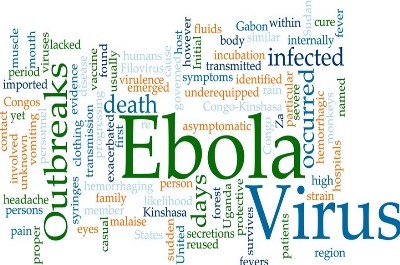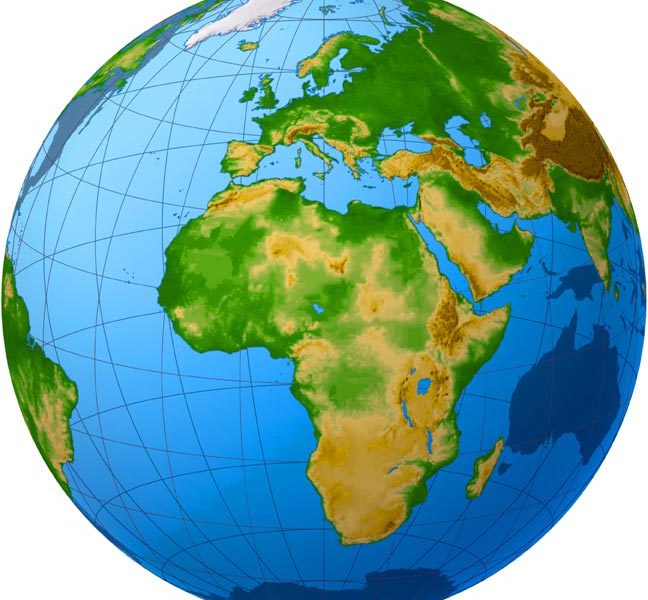The days of Ebola are numbered
Hundreds of Stakeholders on Monday 24th August, 2015 joined His Excellency the President Dr. Ernest Bai Korma to discharge the last Ebola patient in Sierra Leone, from the International Medical Corps’ manned Treatment Center at Manteneh Village in the Bombali District, North of the country.
Madam Adama Sankoh had her last Ebola test negative before she was officially discharged by the President in the presence of Government officials, donor partners, well-wishers and other concerned Sierra Leoneans.
The discharge of poor Madam Adama Sankoh was to mark the beginning of the countdown towards consecutive forty-two days, if we had not registered the recent Kambia case – but we are still on track, taking into consideration the zero cases the entire country continues to record.
According to the World Health Organization (WHO), the countdown starts after the last Ebola patient has been discharged from treatment centre and that a country would be declared Ebola-free after the forty-two days countdown or two incubation periods of twenty-one days each.
As Sierra Leoneans continue to patiently observe the forty-two days countdown in the hope that it would run smoothly, President Dr. Ernest Bai Koroma has said the discharge of Madam Adama Sankoh as the last Ebola patient was the beginning of the end of the deadly epidemic. He reiterated that Sierra Leoneans should not be complacent; as the pandemic is not yet over until it is declared over by WHO after the forty-two days countdown.
While admonishing the people to continue to call 117 when someone is sick or dies, President Dr. Ernest Bai Koroma said although it was a moment to celebrate, there was need to reflect on the over 3,500 people who lost their lives to the deadly epidemic including hundreds of healthcare workers.
The President commended the tremendous efforts and support of development partners, institutions and individuals who in diverse ways contributed to the fight to end the outbreak. A particular institution the President singled out for commendation was the National Ebola Response Centre (NERC) that was set up by him when international response to the Ebola fight was heightened during the peak of the outbreak in August, 2014.
President Koroma however cautioned that “we must do all we can to stop Ebola in the Mano River Union affected countries” of Sierra Leone, Guinea and Liberia which has now been declared Ebola-free by WHO.
The NERC’s Chief Operations Officer, Steven Gaojia, was full of praises for national rapid response initiative works in Tonkolili District in the North of Sierra Leone, which he attributed to those few cases that were recently cured. He has the strong conviction that the forty-two days countdown would run smoothly, but he however cautioned that if anything happened during the countdown, nobody should panic at all. “We must not allow Ebola to roam in our country” Gaojia stressed.
Madam Adama Sankoh contracted the deadly virus, sources say, through her son who did not survive the disease. Her son died at the Massesebeh Health Centre and his swab proved positive. The son, according to report, came to the village from the capital Freetown sick, and was taken to the health centre where he gave up the ghost. Following his death, Madam Adama Sankoh later fell sick and was tested positive for the deadly virus. The Massesebeh Village in the Kholifa Rowala Chiefdom, Tonkolili District, got the case after the district had registered one hundred and fifty days without any new case. Reports state that over four hundred people were quarantined following the death of Madam Adama Sankoh’s son.
The discharging of Madam Adama Sankoh as the last Ebola patient from the treatment centre is a very significant moment for the Government of Sierra Leone and its development partners as well as Sierra Leoneans who were directly affected by the Ebola outbreak that caused the deaths of over three thousand, five hundred people and had serious devastating effect on the national economy and ongoing development programmes aimed at alleviating poverty among Sierra Leoneans.
With the end of Ebola now in sight, Government would have the opportunity to concentrate on the post-Ebola recovery programme that would bring the President’s ‘Agenda for Prosperity’ back on track with more support from International partners and friends of Sierra Leone like the People’s Republic of China. Government would also divert most of the resources in the Ebola fight to more development programmes, though strengthening of our health sector remains a priority to Government.
One of the major challenges during the outbreak of the Ebola Virus Disease (EVD) was the limited access to medical facilities and the poor numerical strength of health workers. The health sector was very weak to tackle the initial outbreak as there were few health facilities and health workers to fight the virus successfully.
As a result, many health workers on the frontlines died because they had no experience in fighting the virus since this was the first Ebola outbreak in not only Sierra Leone, but also in neighboring Guinea and Liberia. It was against this backdrop that international partners like UN Emergency Health Mission; the UN Mission for Ebola Emergency Response (UNMEER) was set up in response to the unprecedented outbreak. The emergency health mission has worked closely with the Government and national structures to end Ebola in the country.
The support of development partners has contributed greatly in the fight to end Ebola. Whereas the outbreak met Sierra Leone with a very weak health system, international response to the outbreak saw many international partners aiding the country with medical equipment, healthcare workers, structures, ambulances and other health facilities needed to fight the virus in its entirety. To sustain these facilities and to even create more, Government has come up with a programme through the Ministry of Health and Sanitation with the object of strengthening the health sector with support from international partners, which the Ministry is working on twenty-four hours a day.
Now that the Ebola is in sight, Sierra Leoneans are hopeful of more support from development partners as Government prepares to implement the post-Ebola Socio-economic Recovery Programme. The outbreak has left the country in economic ruins as two major companies mining iron ore in the country ceased operations.
London Mining Company and African Minerals Limited were the two major economic drivers that contributed largely to national revenue. Many other companies in the manufacturing and entertainment industries also ceased operation while others had to lay down most of their employees to reduce their financial burdens.
Even when Sierra Leone would be declared Ebola-free, Sierra Leoneans believe that it would take time for government to recover from the devastating blow which the outbreak dealt to the national economy and that would require support from development partners and robust austerity measures that would generate more revenue for government to not only consolidate the gains made during the implementation of the Agenda for Change, but to also embark on more development programmes that would help alleviate poverty among Sierra Leoneans. With this in mind, the Government has held successful meetings at home and abroad on the post-Ebola Socio-Economic Recovery Programme under which many more development projects are expected to be implemented by government and its development partners.
Sierra Leoneans are still under health restrictions but many other restrictions have been relaxed by the President, who has cautioned his compatriots not to be complacent as the Ebola disease is not yet over until it is declared over by the World Health Organization. Sierra Leoneans are therefore happy that the freedom they have lost for over a year is now in sight. It is only a matter of time when WHO would declare it over and everything would be normal as before.
The discharging of Madam Adama Sankoh from treatment centre as the last Ebola patient is a clear manifestation of Government’s resilient commitment to end the Ebola fight. Despite the slow international response at the initial stage, Government had to divert resources meant for pertinent programmes to the Ebola fight.
President Koroma’s leadership role in the Ebola fight, the shrewdness of NERC in the implementation of the Ebola programme, the international response, the concerted efforts of institutions and individuals, the collective effort of Sierra Leoneans at home and abroad, and above all, the fervent prayers Sierra Leoneans are offering have made us, as a nation, to be hopeful that the days of Ebola are numbered.
Stay with Sierra Express Media, for your trusted place in news!
© 2015, https:. All rights reserved.





